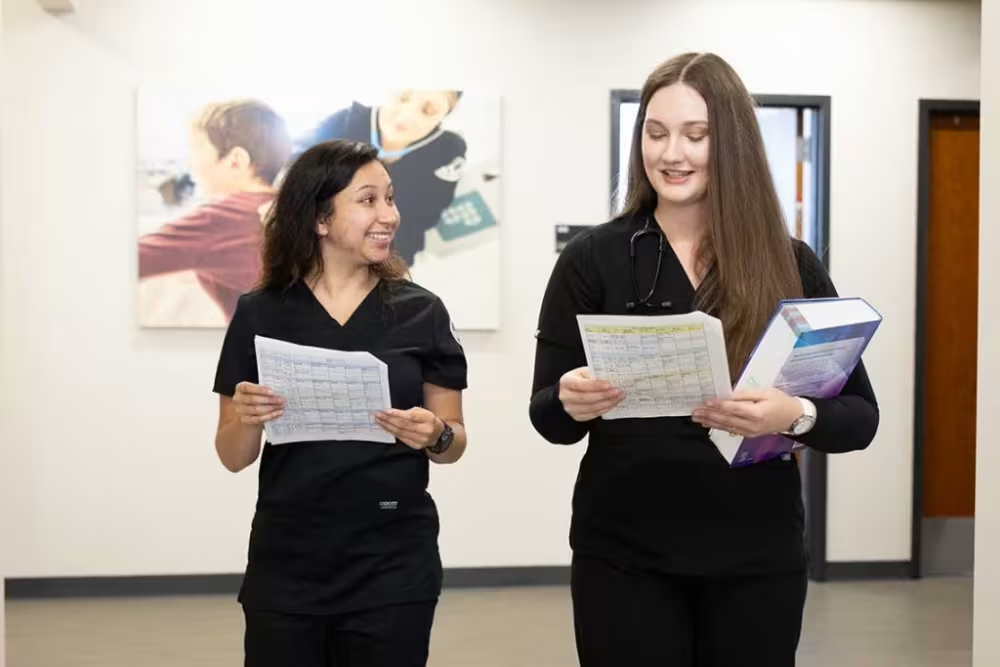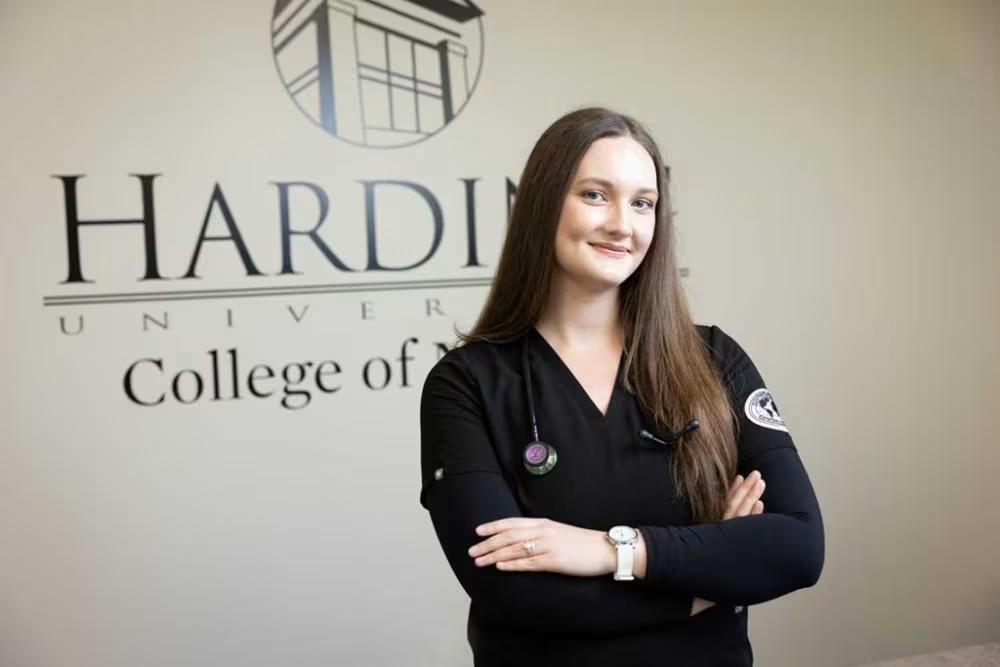Becoming a Nurse with a Non-Nursing Bachelor’s Degree: Your Path to a Nursing Career
Each blog post is dated and contains accurate information as of that date. Certain information may have changed since the blog post publication date. If you would like to confirm the current accuracy of blog information, please visit our ABSN overview page or contact admissions at (877) 505-2276.
Becoming a nurse with a non-nursing bachelor’s degree offers considerable benefits, like the strong job growth rate and salary potential for registered nurses. With an accelerated Bachelor of Science in nursing program, you can graduate with your nursing degree in as few as 16 months.

If you’re not happy with your current job, you have plenty of options to consider. If you’re interested in a well-respected career with advancement opportunities and the potential to pay well, you might consider pursuing a career in nursing. Becoming a nurse with a non-nursing bachelor’s degree is more feasible than you might think, and you might not need to return to school for another four years to achieve it.
At Harding University, we welcome second-degree students interested in making a nursing career change. Our accelerated Bachelor of Science in nursing program allows you to earn a nursing degree in as few as 16 months after completing any needed prerequisites.
As you consider making a career change to nursing, it’s helpful to learn more about nursing programs, including admissions requirements and curriculum components. You may also want to take a closer look at the benefits of switching to nursing and how you can prepare to navigate the transition.

What can you expect in nursing school? Learn how our ABSN program works and prepare for success.
Can You Become a Nurse with a Non-Nursing Bachelor’s Degree?
You can absolutely become a nurse despite having a non-nursing bachelor’s degree. At Harding University, it’s even possible to become a nurse if you lack a completed bachelor’s degree. Here, you’ll only need a minimum of 64 credit hours or a non-nursing bachelor’s degree to be eligible, plus completion of any necessary prerequisites.
What Are Second-Degree Nursing Programs?
Second-degree nursing programs are designed for people who have already earned a bachelor’s degree in another field. The BSN they earn via the ABSN program becomes their second degree. Not all ABSN programs require a completed bachelor’s degree for admission, however.
In short, a second-degree program enables you to earn a nursing degree quickly to facilitate your transition into this new career field. It’s designed specifically for those looking to change careers rather than recent high school grads or those without any college credits.
Key Admissions Requirements for Second-Degree Nursing Programs
All nursing programs have their own admissions requirements. Even if you aren’t sure whether you qualify for Harding University’s ABSN program, it’s worth taking a few minutes to call the admissions team to check your eligibility.
It’s possible that taking a few steps to improve your candidacy could make you eligible. The basic admissions requirements at Harding include:
- At least 64 credit hours
- Successful completion of nursing prerequisites
- At least 2.78 GPA in prenursing courses
- A cumulative GPA of at least 2.5
- A passing score on the HESI exam
- Completion of a state and national criminal background check
In addition, all students must submit one character reference from someone who isn’t a family member. Students whose native language is not English must also earn a composite score of at least 83 and a speaking score of at least 26 on the TOEFL.

Other Nursing Program Factors to Consider
Not every ABSN program is right for every aspiring nurse. It’s important to take the time to research your options and determine which is the best fit for you. One of the most significant factors in choosing a nursing school is checking for accreditation.
Harding University has received accreditation and state approval, so you can trust the quality of our nursing education.
Other factors to consider include:
- Geographic location
- School reputation
- Clinical placements
- Tuition and fees
- Financial aid availability
You should also consider whether an online nursing program for non-nurses is right for you. At Harding University, our hybrid accelerated BSN program combines online coursework with in-person labs and clinicals. While the program is not 100% online, online coursework offers flexibility in when and where you can complete assignments, provided you meet deadlines.
By combining online learning with essential in-person learning experiences, students get the best of both worlds. They participate in flexible online learning while gaining hands-on experience in nursing skills and simulation labs and real-world experience in delivering patient care under supervision during clinical rotations.
Benefits of a Nursing Career Change
to joining the nursing field, like the strong demand for qualified nurses. According to the U.S. Bureau of Labor Statistics, the expected job growth rate for registered nurses is 6% from 2023 through 2033, faster than average, indicating that health care employers expect to hire about 197,200 new nurses during this time period.
In addition, RNs have strong earning potential. The U.S. Bureau of Labor Statistics states that the median annual wage for RNs was $86,070 as of May 2023. Advanced practice registered nurses can command an even higher salary with a median annual wage of $129,480 as of May 2023.
Other reasons to make a nursing career change include:
- Diverse nursing specialty options
- Wide variety of work settings
- Well-respected profession you can be proud of
- Opportunity to serve others
- Potential for career advancement
There are so many career opportunities for nurses, including both hospital and non-hospital roles.

How to Prepare for the Transition to Nursing
The pace of our ABSN program is intense, so it’s helpful to prepare in advance. Once enrolled, you will have the support of your fellow students, dedicated faculty and academic success coaches to help you through the challenges of nursing school.
To help prepare for the journey ahead, try following these steps while completing nursing prerequisites.
Get Certified and Care for Your Own Health
Get certified in cardiopulmonary resuscitation and basic life support. You should also review your immunizations and receive any vaccinations you’re lacking. Consider scheduling your annual wellness exam, along with dental and vision checkups, since you might have a busy schedule once enrolled in nursing school.
Purchase Nursing School Supplies
You’ll need to purchase supplies for nursing school ahead of time, including:
- Comfortable orthopedic shoes
- Compression socks
- Day planner and other school supplies
- Hemostat
- High-quality stethoscope and stethoscope case
- Medical penlight
- Nursing bag
- School scrubs
Explore Financial Aid Options
Another way to prepare for nursing school is to review your financial aid options. You’ll need to fill out the Free Application for Federal Student Aid for each year you’re in nursing school. The online application becomes available Oct. 1 each year, and it’s best to submit it as quickly as possible. The FAFSA determines your eligibility for federal student loans and grants.

In addition to federal student aid, you might be eligible for state aid. Another way to finance nursing school is to apply for scholarships for nursing students, along with any other scholarships you may be eligible for.
Lastly, compare interest rates and terms on different private loans from banks and credit unions. Choose the best options to fill in the financing gaps.
Start Your Nursing Education at Harding University
When you’re ready to make a nursing career change, Harding University is here to support you. Our ABSN program in Arkansas prepares future nurses to become compassionate health care leaders who work as Christian servants. We offer three start dates each year, so you can get started sooner. Plus, you can complete your nursing coursework online.
Contact our admissions counselors today to discover how Harding can help you achieve your full potential as a nurse candidate.
